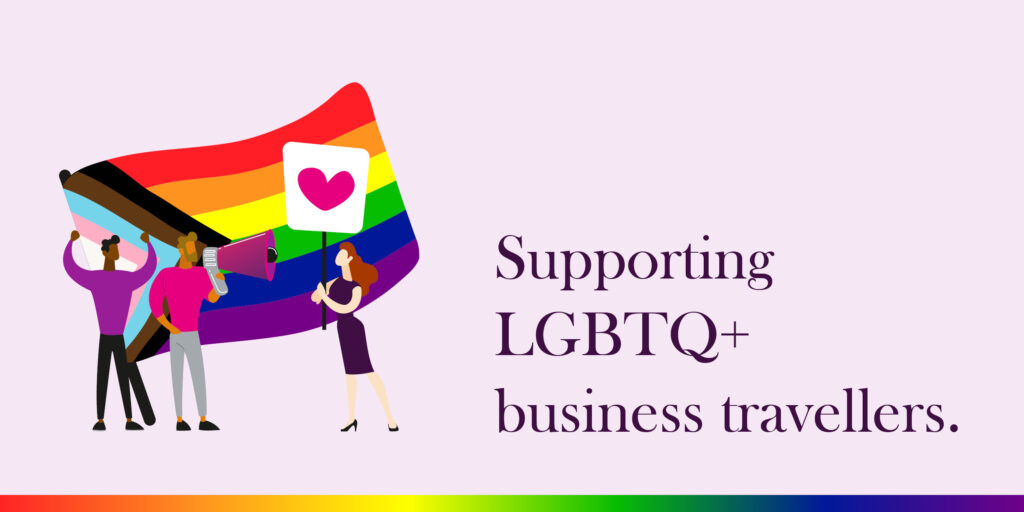Nearly one fifth of Gen Zers and one in ten Millennials, across 26 countries in the Americas, Europe and Asia, identify as LGBTQ+, demonstrating how important it is for companies to support LGBTQ+ business travellers.
However, in a survey last year by security specialist World Travel Protection, only one in seven companies offer specific travel information regarding LGBTQ+ rights to employees before they travelled overseas.
Today’s workforce is more diverse than ever and the research highlights a clear need for enhanced duty of care programmes tailored to LGBTQ+ individuals, especially when it comes to business travel. This need is only set to grow as younger generations, particularly Gen Z, who are the most likely to identify as LGBTQ+, enter and reshape the workforce. With them comes a strong expectation for inclusivity and support in all aspects of the workplace experience.
How can you help support your LGBTQ+ business travellers?
- Work with your TMC and its risk management partner on destination risk assessments. Even if identifying as LGBTQ+ is not illegal in a country, social attitudes might be conservative.
- Ask travellers to consider what apps they have on their mobile phones that might reveal personal details about themselves. And prepare them for potential questions that may be asked at immigration, such as about a spouse.
- Engage support from HR and legal teams from the country the traveller is from and the one they’re going to. And ask employees living in international destinations to share tips on lived experiences. Also, research online for anecdotes and suggestions to better understand what challenges there may be.
- Refer to advice and destination guides from LGBTQ+ associations and charities such as Stonewall, IGLTA and GLAAD. These provide information on societal attitudes, as well as legislation and how it will influence any member of the LGBTQ+ community.
- With your TMC, conduct a risk assessment of how you would remove travellers in an emergency, if needed.
- Share information on local laws with all business travellers. Make all your travellers aware that some destinations may carry some risk to their LGBTQ+ colleagues. This is essential whether they’ve disclosed the information or not. Avoid putting them in a position that may cause an issue.
- Work with your TMC to provide updated information on immigration, visas and border control. Find out if all travellers will have access to healthcare that’s available in the visited destination. Include advice such as ensuring the traveller, if taking any medication, has enough of that medication to take with them. They should also advise to check the prescription’s name matches the one in the traveller’s passport.
- Have information ready to share on LGBTQ+ friendly hotels, restaurants and venues, as well as any LGBTQ+ support groups in the destination of travel. And remind travellers to be mindful about what they post on their own social media channels while travelling.
- Provide information on airlines that offer a non-binary option for gender selection on tickets. And share details on the countries that allow passport holders a non-binary option.
While the International Civil Aviation Organisation – which sets the standards for machine-readable passports – provides three gender options (female, male or X) only a handful of countries offer this option to passport holders. These include Austria, Denmark, Germany, Iceland, Ireland, Malta and The Netherlands, Canada, the United States, Mexico, Colombia, Argentina, Pakistan, India, Nepal, Australia and New Zealand. - Trans persons can be particularly vulnerable. With many passports, or when buying tickets, there is still the need to choose a gender. Engage with trans-rights organisations who can guide you.





